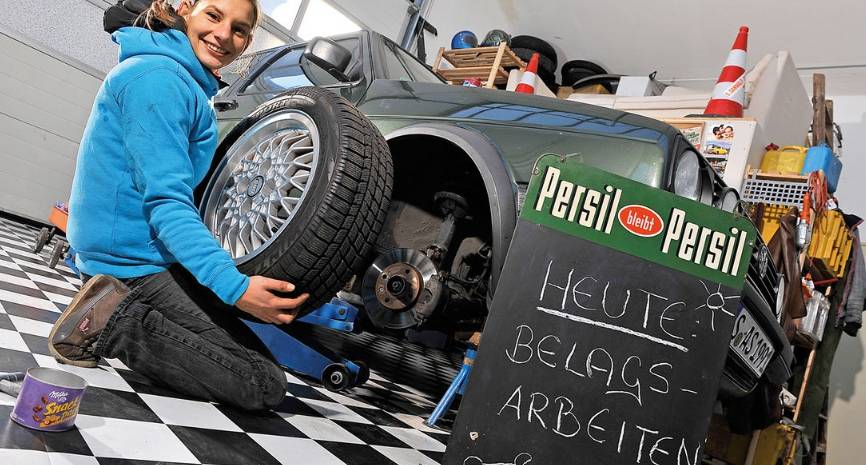Yes, working on brakes is safety-relevant and officially a masterpiece. On the other hand, replacing the brake pads is one of the simple exercises – but should only be done by skilled screwdrivers.
No, I don’t want to kill, hurt, or tempt anyone into anything that could put them in a predicament. The topic of “braking system” is therefore a particularly delicate matter.
To put it very clearly right from the start: The brake system on the car should protect the occupants and other road users and must always work 100% under all circumstances. The driver must be able to rely on the fact that he has a perfect brake in an emergency and that his vehicle comes to a standstill in an emergency. Hobby screwdrivers should therefore only work on the brake system if they really know exactly what they are doing. Otherwise it is better to leave the job to a specialist workshop.
Speaking of the previous speeches: Many thanks to the people who always gave me feedback on all channels. A few comments. Of course, I screw without gloves – for two reasons: first, because there is an allergy to plasticizers (phenoxethanol) (causes ugly smallpox on the face), and secondly, because “without rubber” simply gives the better feeling.
And yes, my stories are based on a fully equipped workshop as well as knowledge that I have gathered on the street. A mixture of knowledge and improvisation, usually with simple means and not always in compliance with all regulations.
Easy to do for experienced screwdrivers
This issue deals with the replacement of wearing parts of an 08/15 disc brake system, as is used in almost every motor vehicle (at least on the front axle). Drum brakes are often installed on the rear axle (and also on the front axle in very old cars). In today’s context, we only take care of these marginally.
The brake pad change for said disc brake system can be handled with a commercially available jack plus fuse, common tools, copper, aluminum or ceramic paste and of course new material. A change should be made in good time and not only when a scraping noise indicates that the brake pad is now completely worn out and that metal on metal is braking. This is not only negligent and dangerous, but also annoying because new brake discs are now also due.
Leak? Acute troubleshooting!
If you have a good feeling in your right leg, you can tell when braking that the pressure point always comes a little later. Then it is time to check the brake pads. Another reason can also be a leak in the braking system itself. This can be seen on the brake fluid reservoir: If you have to tip the fluid, you should quickly look for the cause of the loss.











More Stories
8 gears for front-wheel drive models
This makes the lubricant exchange smart